When it comes down to it, few are really surprised that Jess Levin, 29, ended up transforming the world of weddings. But, like most career paths, Jess’s background wasn’t without a bit of meandering before she found success.
It all began in the training program at Lord & Taylor, where Jess ultimately realized that big box retail just wasn’t for her. Next, she segued over to Burch Creative Capital where she stayed for three years, first as an analyst and later an associate. Fast forward through an MBA from NYU’s Stern School of Business to June of 2012, and Jess’s dream was realized—the creation of her own wedding lifestyle website, Carats & Cake.
As founder and CEO of the popular site, Jess balances rapid company growth with a keen focus on her brand’s mission. Carats & Cake is encouraging, the color scheme is to die for and it has established itself in the industry as a simultaneously calm and communal place for brides to combat the stresses and creative roadblocks so often associated with wedding planning. Jess went to business school to make sure that she knew exactly how finance worked, and that dedication has translated into a beautiful website that catapulted weddings into the age of social media—and beyond!
Her Starting Point
Your first post-college job was at Lord & Taylor. How did you land that job? What did you learn about yourself while there?
I have always been drawn to fashion but wanted to learn the business side of the industry (I am a big believer in building a strong foundation), so I entered L&T’s training program. However, I quickly realized big box retail wasn’t for me.
I reached out to some friends for advice because I wanted to get a different perspective on the fashion industry and that’s how I ended up in Chris Burch’s office. What started as a meeting for advice quickly turned into a job interview. At 23 and with no relevant experience, I was given a chance with the terms “I fire fast.”
I learned two incredibly important things at Burch Creative Capital. The first, before I even started: ask for advice. I am not sure if I had reached out for a job directly if I would have gotten the meeting or, better yet, if I hadn’t reached out for advice if I would have even known about the job. Some of the most valuable relationships I have built have started with my asking for advice.
Second, “You can spend your life building someone else’s dreams, or you can build your own.” The three years I spent at Burch Creative Capital were nothing short of amazing. I worked with world-class entrepreneurs and industry leaders, and had exposure to opportunities I never could have dreamed of.
However, about a year in, Chris started teasing me that I “wasn’t made to work for someone else” (this is the nice version of his comment). The first time I heard this, I remember being frustrated, thinking it was an attack on my performance. Eventually, I realized it was just the opposite. I could either stay and help him build his dreams, or I could go chase my own.
Why did you decide to pursue business school? What were the pros and cons of your experience at NYU Stern?
As I said before, I love a strong foundation. While at Burch Creative Capital, I realized I didn’t know enough about finance. I tried to learn on the job, but didn’t have the discipline. I had no desire to be the expert in the room—I just didn’t want to be in the dark (which is how I felt each time we met with an investment banking team or worked on structuring a deal). I wanted to know enough so that I could ask the right questions and contribute to the decisions. I also knew that if I eventually did my own thing, having an understanding of finance and accounting would be invaluable.
I didn’t go to business school thinking I would build a company; I thought I would work in finance for a few years after graduation to solidify my financial prowess before moving back to something more entrepreneurial. But I did go with a very specific goal and tailored the schools I applied to, and eventually my curriculum, to my needs. I took all the sexy classes—corporate finance, valuation and accounting—and got the financial education I wanted. Being in New York, Stern has incredibly clinical professors (one of the major draws for me) and I built some great relationships, both personally and professionally.
Where did the idea for Carats & Cake come from? How did you balance being a full-time student with building a company?
The first time I thought about the wedding space I was sitting in a business school lecture discussing De Beers, the diamond company, (diamonds led me to engagement rings and then to weddings…naturally). After spending a few months researching the industry and hearing some of my newly engaged and married friends complain about the challenges of planning a wedding, I realized there was an opportunity to somehow simplify the process.
Balancing was not easy and I definitely gave up some of the more traditional business school experiences, especially during my second year. I was able to focus on my classes, but didn’t have as much time for the social aspects or the travel, which, regardless of what people say, are just as much a part of business school as the education.
There also were moments when I had to make a decision between getting an A or moving the business forward. There is no right answer to that one, but at the time, I felt the business was more important than my GPA. During my final semester, I only had one day of classes, so I worked pretty much full-time on the business and part-time in business school.
Her Big Break
What was your first step after you decided to create Carats & Cake? What lessons have you learned along the way?
As obvious as it sounds, the first thing I did was organize my thoughts by building a business plan (if you could even call it that). Really, it was a compilation of market research and visual inspiration, as well as my first attempt at articulating the problem in the space and how we would solve it. I then used this business plan to get “advice” from my now co-founder. The process of organizing our thoughts and getting really clear about what we were trying to accomplish was incredibly valuable because it provided a starting point, both for the concept as well as a foundation for how we thought about the business and the decisions we make even today.
How did you go about finding investors? Did you create a pitch deck? What role do your investors play?
Every investor we have to date has started with a relationship.
Many have been friends and mentors that supported us from the beginning, so when we decided to do our first raise and circulated a deck (yes, we created a pitch deck) it wasn’t so much a question of if we would raise capital but how much. We have been really lucky that way.
Each investor plays a different role: some have relevant experience (legal, financial, branding) and they are always willing to hop on the phone and offer their insight, while others are constantly helping to spread the word and are our biggest cheerleaders.
Creating a website is no easy task. How did you find the resources (developers, designers, etc.) to help you build Carats & Cake? How long did it take to complete?
Two words: my co-founder. He is one of the most talented people I have ever met, and I am lucky to work with him every day. After we were clear on the concept, it took us about three months to build the first version of the site that was available to the public.
Tell us about the daily tasks and responsibilities as CEO. What kind of interaction do you have with other Carats & Cake employees?
We have an open office and a really collaborative culture, so as a team, we are all in constant communication. Also, the business is evolving daily and we are learning as we go, so the regular communication ensures everyone is on the same page. As CEO at an early stage company, my daily tasks include a little bit of everything, but my biggest responsibility is to keep the team motivated and moving ahead.
The website is gorgeous! What qualities were essential to you during the design phase? Did you know beforehand how you wanted it to look or did it evolve?
Thank you! We knew we wanted something simple and elegant but still approachable, an aesthetic that would complement the industry without being too feminine. Also, I am not a big fan of color (anyone that knows me well knows this) so we were destined for black, white and gray.
Her Perspective
What is the most challenging part of running your own business? What resources do you rely on (ie. mentors, employees, etc.) to help you manage obstacles?
The most challenging thing is focus—for the overall company, our team and myself. You are always being pulled in a million different directions at every moment of every day and you have to have the discipline to stay focused and, more importantly, know when that focus has to change. I rely on all of the above and more.
Our team is awesome (really). I am constantly inspired by the energy and the passion that everyone shows up with each day. And I feel really lucky to have some pretty incredible mentors in my life that offer great perspective. There are always going to be obstacles so knowing this and developing a process for dealing with challenges is key.
There has been a big increase in online wedding sites recently. How do you deal with comparisons and competition? What unique industry niche does Carats & Cake fill?
It’s really exciting to see all the innovation in the industry! We don’t see competition, but rather more opportunity and eventual partnerships. Our strategy with Carats & Cake is pretty different in that we are focused on local vendors and helping them grow their businesses.
What do you look for in future team members? What skills are must-haves for you?
Someone who is a team player, but also can take initiative. Attitude is really important, so we always look for someone with a positive outlook and who shows up everyday with good energy.
If we had the chance to peek at your schedule, what would an average day look like?
I have a morning routine that starts around 6:00 a.m. with a quick email check for anything urgent before I hop out of bed. I walk to the office around 6:45 a.m. and grab an iced coffee on the way. The early mornings give me a head start on the day so I am prepared for the unpredictability that starts around 9:00 a.m. No two days are ever the same—involving anything from development and design work to investor or wedding industry meetings—but it’s one of the things I love most about what I do. If I don’t have a cocktail meeting or industry event, I try to leave the office by 6:30 p.m. and hit a soul-cycle class before heading home to spend some time with my love and make (I mean, order) dinner. Post dessert, because there’s always dessert, I check in with our development team and answer emails before bed.
What’s next for you? How would you like to see Carats & Cake evolve?
Lots! But right now we are going to continue to simplify the wedding planning process and build a better way for vendors to grow their business.
If you could pin your success down to one thing or one moment, what would that be?
That’s a tough one…I think success is more of a journey than a moment.
And finally, what do you wake up looking forward to?
The small wins that get us closer and closer to changing the way business is done in the wedding industry.
You May Also Like
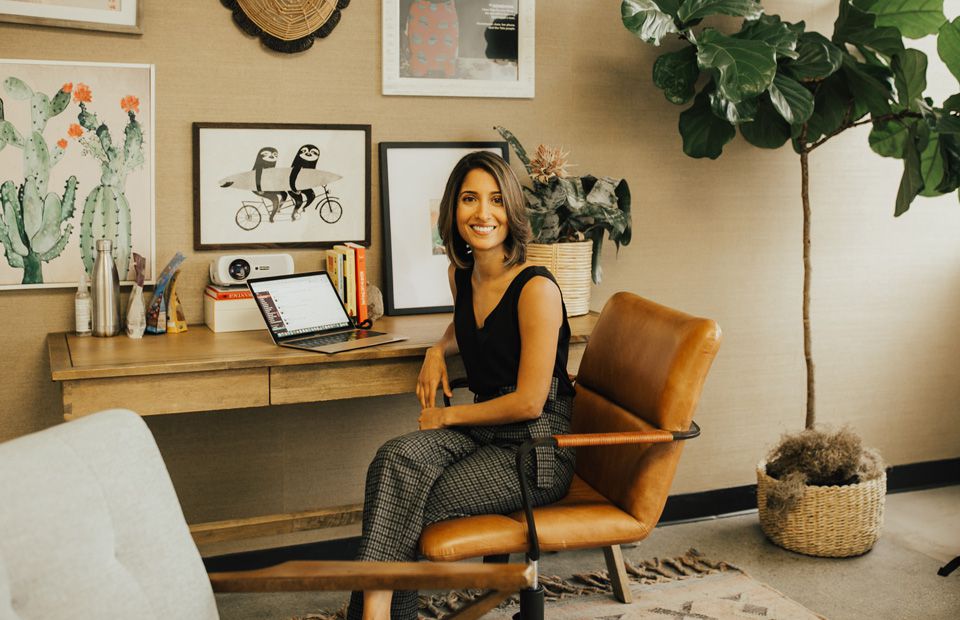
Technology
A Tech Founder on Why Being an Outsider Is a Strength
"I actually think most successful founders are rebels, of a sort. We’re trying to do new things and take on entrenched systems or ways of thinking. What makes me and our company different is that we’re outsiders."
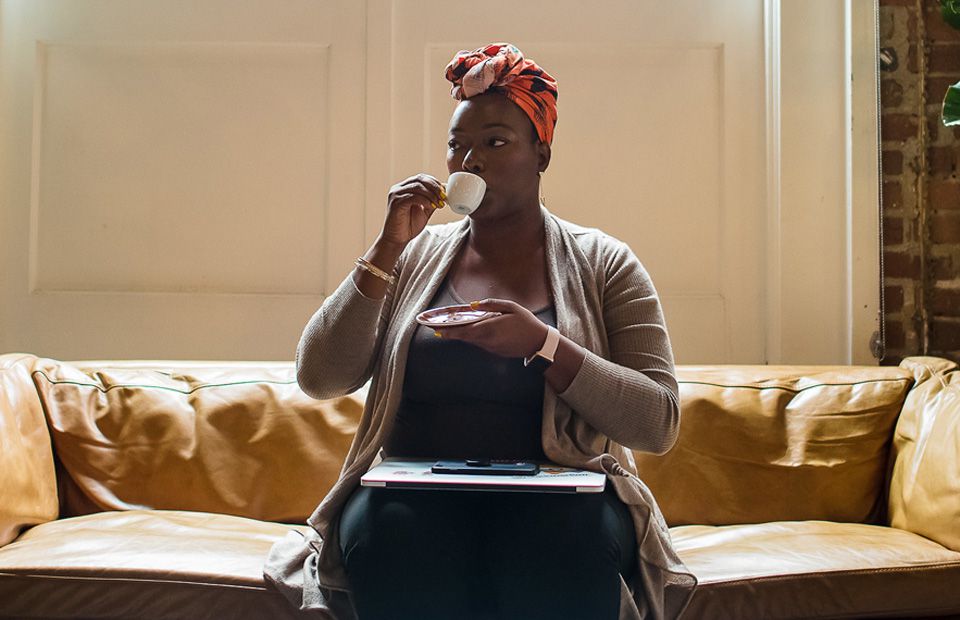
Technology
Omoju Miller—Tech Veteran, Leader, and Volunteer Advisor to the Obama Administration—on The Crucial Role of Creativity in the Tech Industry
"If you are in an environment where you feel marginalized, leave. Don’t try to change it. Go and look for a place that sees you and lets you be you."
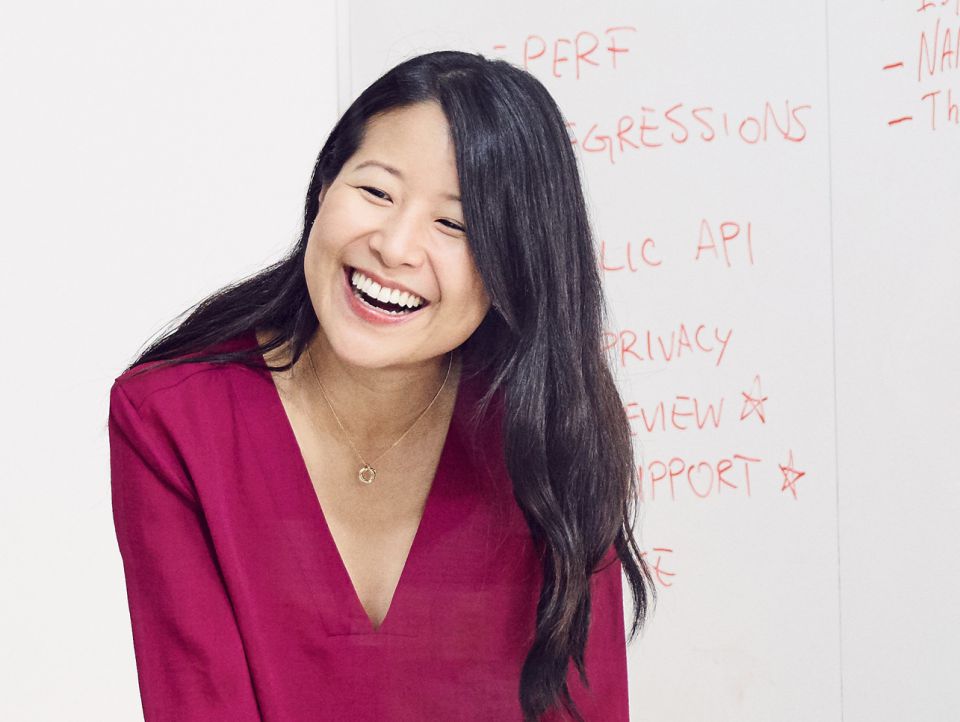
Technology
Sharing Stories as a Software Engineer
We sat down with Apple software engineer Emilie to learn about her day-to-day working at Apple along with what it takes to run the perfect meeting and her favorite ways to unwind.
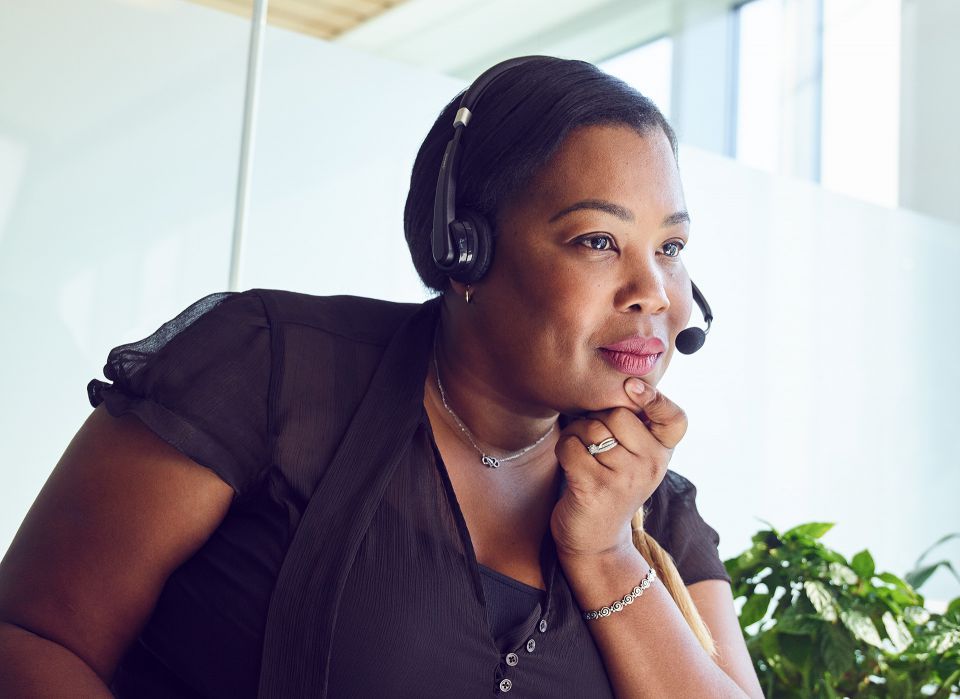
Technology
Creating Impact with Apple
We sat down with Apple's Senior Developer Partner Relations Advisor, Cris, to learn about what it takes to create a lasting impact within a large company. She shares a typical day in the life, her favorite book recommendations, and her top four tips to running a meeting.
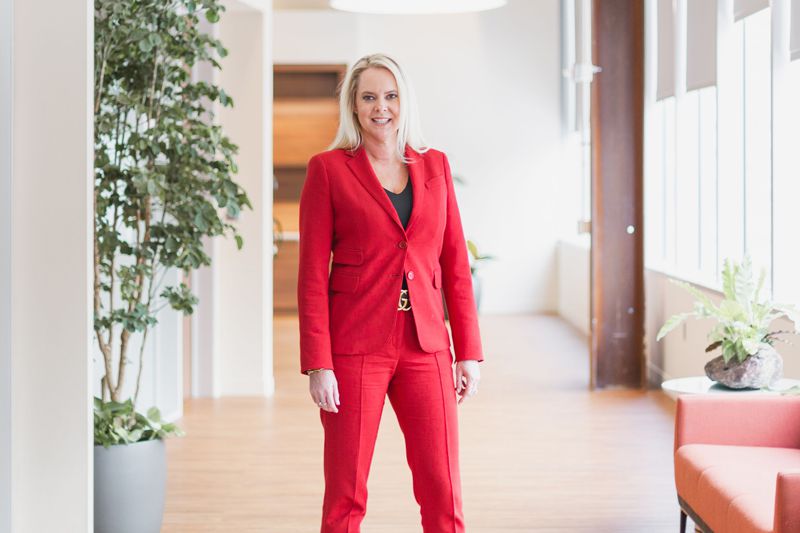
Technology
Salesforce’s Senior Vice President of Sales on Unconscious Bias, Failure, and Innovative Leadership
"Do not be afraid to fail, just bring your best self to the table."
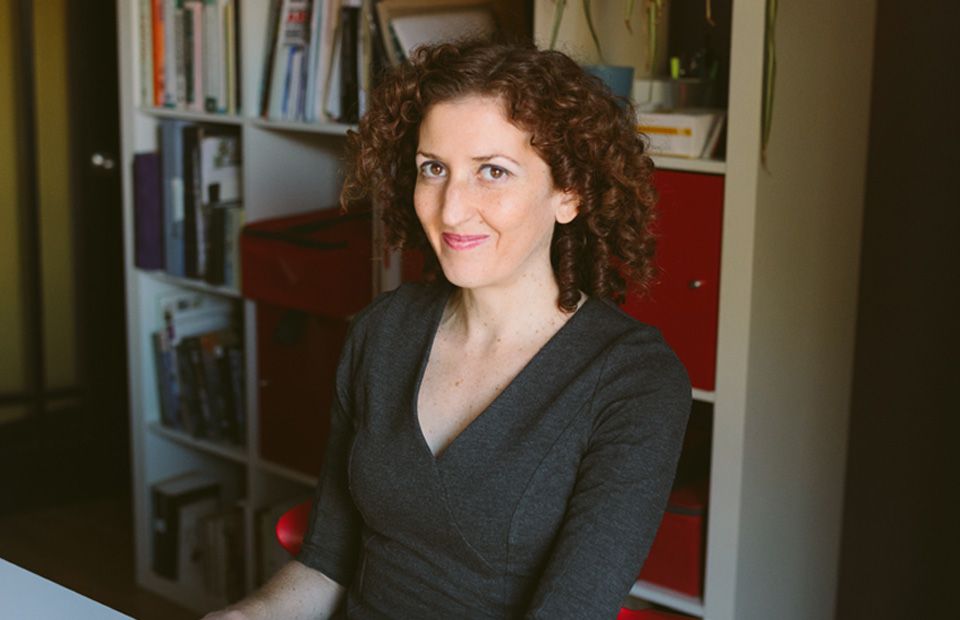
Technology
A Director of Engineering on Tech + Leadership
"I don’t believe in 'having it all'. If you spend more time on one thing, then you spend less time on another thing. All we can do is make choices on how to spend our time."
Get the Best Career Advice Delivered To Your Inbox
Join our newsletter to stay in the loop.
